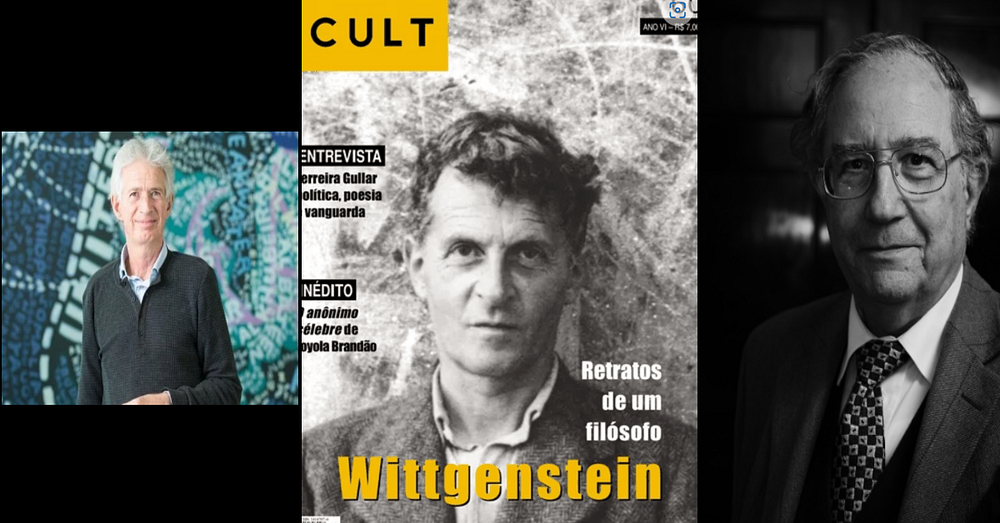
[See my next essay, ‘Two Contemporary Wittgensteinians Fight Against Scientism in Philosophy’.]
“Is Ludwig Wittgenstein truly a hero of philosophy? [] I do think that a lot of people do not regard him as a true hero of philosophy and are too afraid to speak up because everyone else thinks he is a hero of philosophy. []
“I understand that LW was a fascinating figure majorly because of his highly unusual mannerisms and oracular pronouncements. [] [H]e thought most philosophical problems arose out of a misuse of language []. There have been dudes who have stated that we need to calm down about this Wittgenstein dude: Timothy Williamson [is one of them].”
— Ayokunle Afuye (Source can be found here.)
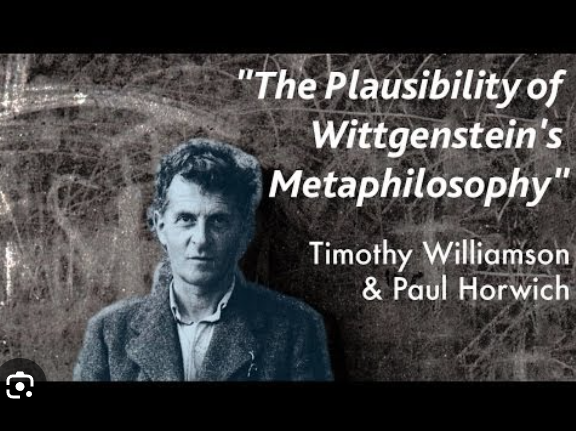
“[Paul Horwich’s] book [] differs in substantial respects from what can already be found in the literature. For it is argued here that [Wittgenstein’s] fundamental idea is not a new conception of language (as most commentators have supposed), but rather a revolutionary conception of what philosophy is []
“Thus the first aim of the present work is to [] explain and justify [Wittgenstein’s] view of how philosophy should (and should not) be conducted, and of what it might achieve.”
— See source here.
Introduction
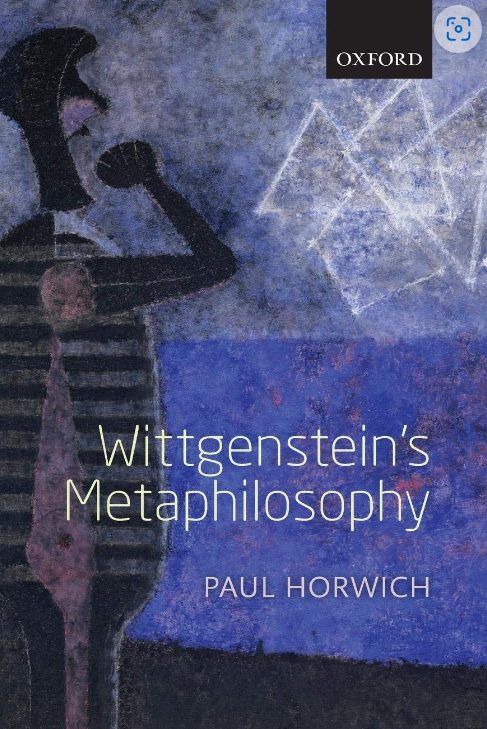
The English philosopher Paul Horwich wrote the following autobiographical introduction to his book Wittgenstein’s Metaphilosophy:
“As a schoolboy, I happened upon the Tractatus in Manchester’s Central Library. It was somehow impressive, and I wished I could understand it.”
Is it creepy to find Horwich’s own introduction to Ludwig Wittgenstein’s work creepy?
Let me explain why the word “creepy” was used…
How could a book be “impressive” to a person who also admits that he didn’t “understand” it?…
Unless the Tractatus was impressive to the young Horwich precisely because he couldn’t understand it.
Horwich’s bit of autobiography seems to be (more than) a hint at the fact that he got into Wittgenstein before he even understood a word of his work. So perhaps the esoteric and gnomic nature of Wittgenstein’s prose style (at least as found in the Tractatus) was part of the appeal for Horwich. Indeed, perhaps it was the entirety of the appeal to the young Horwich.
Horwich’s words actually remind me of Julian Baggini’s account of the poststructuralist (or deconstructionist) French philosopher Jacques Derrida.
In an article called ‘Think Jacques Derrida was a charlatan? Look again’, Baggini wrote the following words:
“One of Derrida’s examiners at his prestigious high school, the Lycée Louis-le-Grand, wrote of his work: ‘The answers are brilliant in the very same way that they are obscure.’”
Perhaps this examiner was simply bowled over — or even hoodwinked — by Derrida’s obscurantist writing style. More relevantly, that writing style became one of the (main) reasons why so many people became Derrida’s disciples.
So, just like Horwich’s own personal introduction to Wittgenstein, how did this examiner know that Derrida’s answers were “brilliant” at the very same time as acknowledging that they were “obscure”? Yet Derrida’s answers were clearly not obscure enough for this examiner to recognise that they were brilliant.
Perhaps Derrida’s answers weren’t obscure at all, or they couldn’t actually have been known to have been brilliant (i.e., precisely because they were obscure).
The same line argument can be aimed at Michel Foucault’s words on Derrida. According to Baggini again, Foucault once stated that Derrida’s work was “either an F or an A+”.
To sum this introduction up.
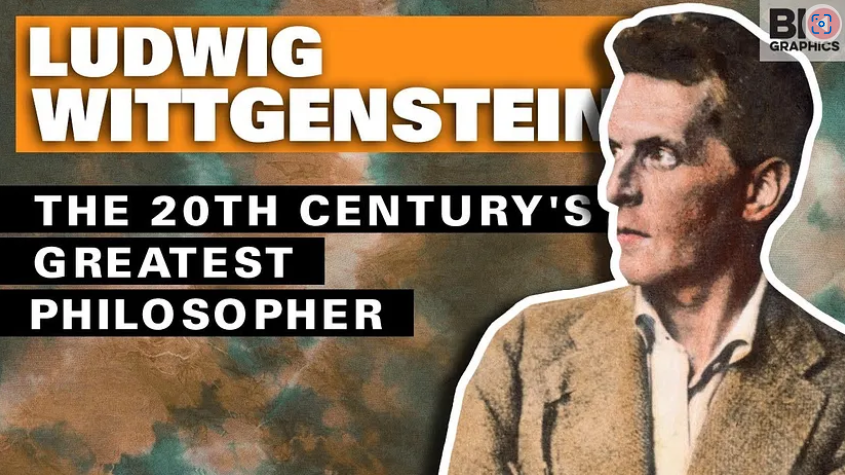
Perhaps it’s indeed cheap and unphilosophical (although still possibly true) to say that many people believe that Wittgenstein was a great and profound philosopher because many people believe that Wittgenstein was a great and profound philosopher. (As already seen, Ayokunle Afuye hints at this in the opening quote.)
Yet, logically, this isn’t also to say that Wittgenstein isn’t a great and profound philosopher. It’s only to say that many people ride on the wave (or assumption) that Wittgenstein is a great and profound philosopher. And that assumption generates some of the (what I take to be) highfalutin and adoring bullshit written and said about the Austrian philosopher.
The Wittgenstein Interpretation Industry
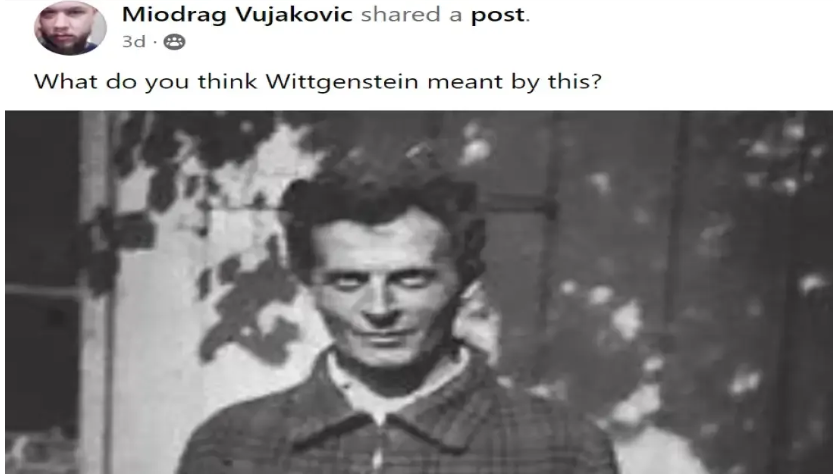
“The only thing that mattered to them [the ‘Wittgenstein cult’] was the question: ‘What did Wittgenstein really mean?’. [] There wasn’t a question as to what’s the best position here [] but what did Wittgenstein really mean?”
— Crispin Sartwell [See source here.]
Here’s a general overview of Paul Horwich’s take on Wittgenstein.
Much of Horwich’s book (i.e., Wittgenstein's Metaphilosophy) is made up of defences and expositions of Wittgenstein’s analyses.
So do Horwich’s portentous and universal conclusions about Wittgenstein’s philosophy follow from his own defences and expositions?
This isn’t to suggest that Wittgenstein himself was wrong on any of the issues discussed in that book. Instead, what may be wrong are the grand “metaphilosophical” conclusions Horwich and others have derived from their defences and expositions of Wittgenstein.
In any case, it just seems so absolutist and cringeworthy to be against all philosophy. This is especially the case when philosophising against philosophy. Of course, some workers in the Wittgenstein Interpretation Industry dispute that Wittgenstein actually was anti-philosophy…
However, Horwich doesn’t seem to.
[All this is related to the Wittgensteinian-theory-against-theory contradiction, which Horwich claims doesn’t exist. This will be tackled in a later essay.]
And this is where those “Wittgenstein scholars” can be brought in.
So how much of an expert does one need to be in order to say anything about Wittgenstein?
Indeed, how much of an expert does one need to be in order to criticise a Wittgenstein expert?
And this is also where the Wittgenstein Interpretation Industry steps in. [See my ‘The Wittgenstein Interpretation Industry’.]
Paul Horwich himself works in the Wittgenstein Interpretation Industry.
The following passage is Horwich's own industrial product:
“[A]n account of [Wittgenstein’s] mature philosophy can be extracted from Part I of the Philosophical Investigations, and that this work should be taken to override any other writings in tension with it.”
[As quoted by another part of the Wittgenstein Interpretation Industry — the British Wittgenstein Society.]
Now how can anyone make such a categorical claim about all of Wittgenstein’s philosophy?
Indeed, how can a Wittgensteinian make such a categorical claim?
By what possible argument, evidence or whatever could someone know (or simply demonstrate) that Part 1 of the Philosophical Investigations “override[s] any other writings in tension with it”?
Wittgenstein on the True Nature of Philosophy
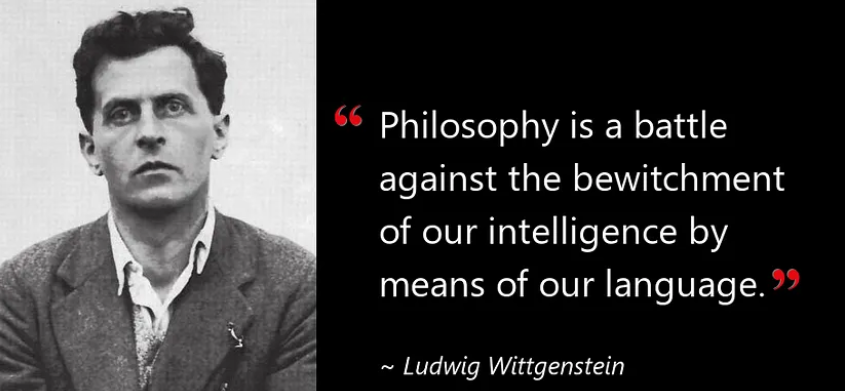
Paul Horwich (in the first chapter of Wittgenstein’s Metaphilosophy) sums up his prime position when he writes the following words:
“Wittgenstein’s most important insight is encapsulated in his remark that ‘Philosophy is a battle against the bewitchment of our intelligence by means of language’.”
Of course, there is some truth to that quoted statement from Wittgenstein. The problem is that Wittgenstein’s worshippers (or mere disciples) take it to be an absolute and all-encompassing truth.
It’s also odd that Horwich should states this:
“Arguably, Wittgenstein’s singular achievement was to have appreciated the true nature of philosophy.”
Surely the phrase “true nature of philosophy” is precisely the kind of phrase Wittgenstein himself would have hated.
Or perhaps I should really say this: Wittgenstein should have hated this phrase.
I offer that qualification because this is just my own interpretation of Wittgenstein. So unless Wittgenstein ever actually wrote “I hate the phrase ‘true nature of philosophy’”, then perhaps all we have is interpretation — at least on this precise matter…
And, precisely because of Wittgenstein’s unique and obscure prose style, that’s why we have the Wittgenstein Interpretation Industry.
P.M.S. Hacker: A Wittgensteinian
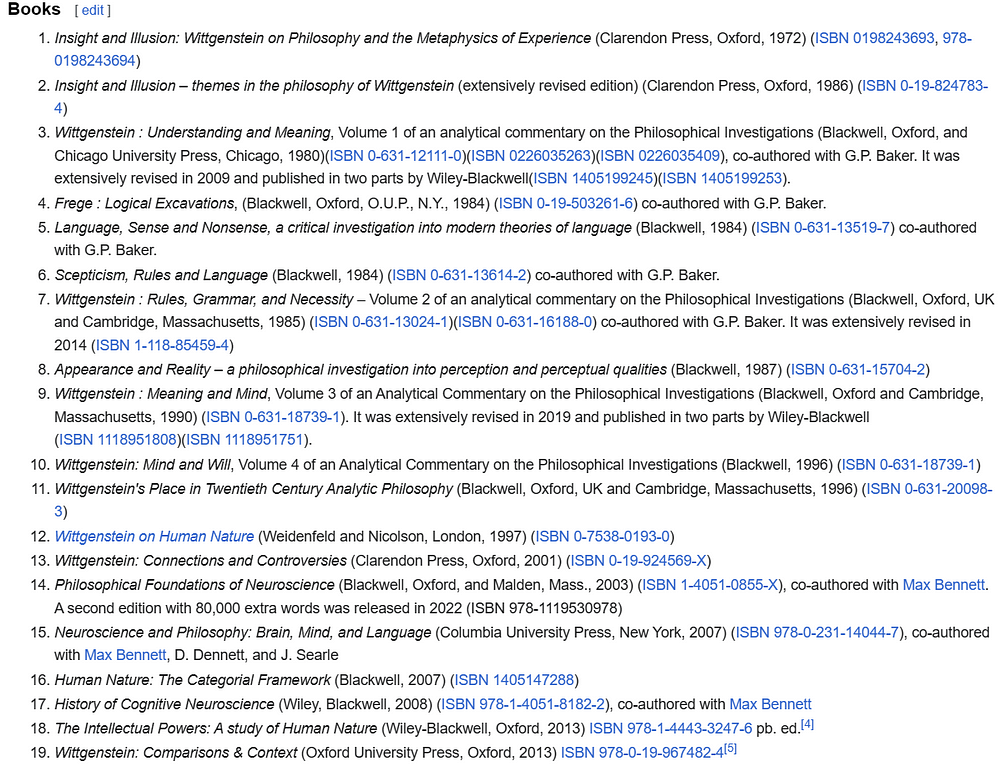
The English philosopher P.M.S. Hacker (1939-) also offers us what he takes to be (to use Paul Horwich’s words again) “the true nature of philosophy”.
Firstly, Hacker tells us that Wittgenstein was largely responsible for the linguistic turn in philosophy. This turn in philosophy became fashionable for a certain period (say, for two decades). Then it largely went out of fashion. Yet Hacker still believes that “it is what philosophy is good for”.
One result of the linguistic turn is that “Wittgensteinian quietists” (such as Horwich and Hacker themselves) still attempt to “dissolve philosophical problems, rather than solve them”.
So let’s discuss Peter Hacker in a little more detail.
Hacker is useful here because he perfectly encapsulates what a Wittgensteinian is.
Indeed, Hacker hasn’t only interpreted Wittgenstein for a living: he has attempted to become (as it were) at one with the Master.
Hacker expresses the Wittgensteinian position perfectly in the following passage:
“[I’m only concerned with] what makes sense and what does not. The bounds of sense can be violated by the misuse of technical, not ordinary expressions no less than the misuse of ordinary ones.”
[This is taken from Hacker’s ‘Languages, Minds and Brains’ contribution to the book Mindwaves.]
Yet, on the surface at least, surely it is taking a tremendous liberty when a philosopher, scientist or academic uses an everyday word in a completely different way. This is Hacker’s take on that issue:
“And, in particular, [expressions] can and — in the cases I have examined — are violated by unconsciously crossing ordinary uses of expressions with half-understood technical ones.”
(As we shall see, this passage is especially germane when it comes to the later subject of consciousness.)
In any case, Hacker believes in what’s been called the “linguistic-therapeutic approach” to philosophy, as originally advanced by Wittgenstein himself. Basically, then, Hacker believes that the words and concepts used by everyday people should be taken as (as it were) given by philosophers.
Consequently, Hacker sees the role of philosophy (as did Wittgenstein) as one of dissolving (or resolving) philosophical problems by examining (among other things) how words are actually used in everyday life.
More precisely, Hacker deems some?/many?/most? philosophical problems to be primarily conceptual in nature. To him, this also means that these problems can be dissolved (or resolved) purely by “linguistic analysis”.
All this lead us to Paul Horwich again and his stance on what he calls “pseudo-problems”.
Consciousness as a Pseudo-Problem
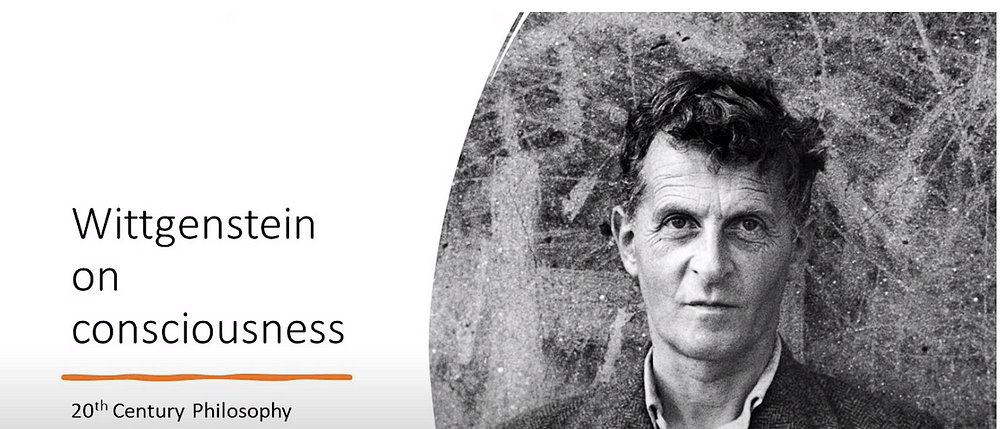
It was almost inevitable that Horwich would apply his “therapeutic” approach to consciousness. Predictably, he believes that the “mystery” (although not all philosophers use that word!) of consciousness can be dissolved in this way. That is done because “the problem of consciousness” can be shown to be a “pseudo-problem”.
Personally, I am somewhat sympathetic to this account of the problem of consciousness. However, because I’m neither a “Wittgenstein scholar” nor a worshipper of the philosopher, I don’t take every word Wittgenstein wrote (or uttered) on this subject as gospel.
In any case, one problem I have is with Horwich’s resurrection of the 1930’s term “pseudo-problem”. This is his definition of that term:
“[A] pseudo-question or pseudo-problem is one that we should not attempt to answer — not because it is too difficult, but because it there is every reason to expect that no objectively correct answer exists.”
Then the (as it were) logic of pseudo-problems is specifically applied to consciousness. Horwich tells us that his job is
“to explain sympathetically Wittgenstein’s view that the traditional and still widely debated perplexities of consciousness are indeed the result of recognizable defective assumptions rather than the incompleteness of scientific knowledge and of our conceptual repertoire”.
This philosophical position on the philosophy of consciousness is also adopted by Peter Hacker.
Hacker believes that the “problems” and “mysteries” of consciousness dissolve once we realise that everyday words are either being (to use his own word) “misused”, or that new technical terms simply don’t have any substantive content.
(For example, Hacker believes that the term “qualia” is a, as Daniel Dennett has also put it, “philosopher’s artefact”. [See Hacker here.])
This philosophical stance is related to what was once called ordinary language philosophy.
This was a philosophy (rather than a specific school) which saw traditional philosophical problems as being rooted in the misunderstandings philosophers — and also scientists in Hacker’s case! — make when they distort (or simply change) everyday words. The upshot here is that using everyday words in new ways can often create philosophical problems, rather than help philosophers and scientists solve them.










No comments:
Post a Comment